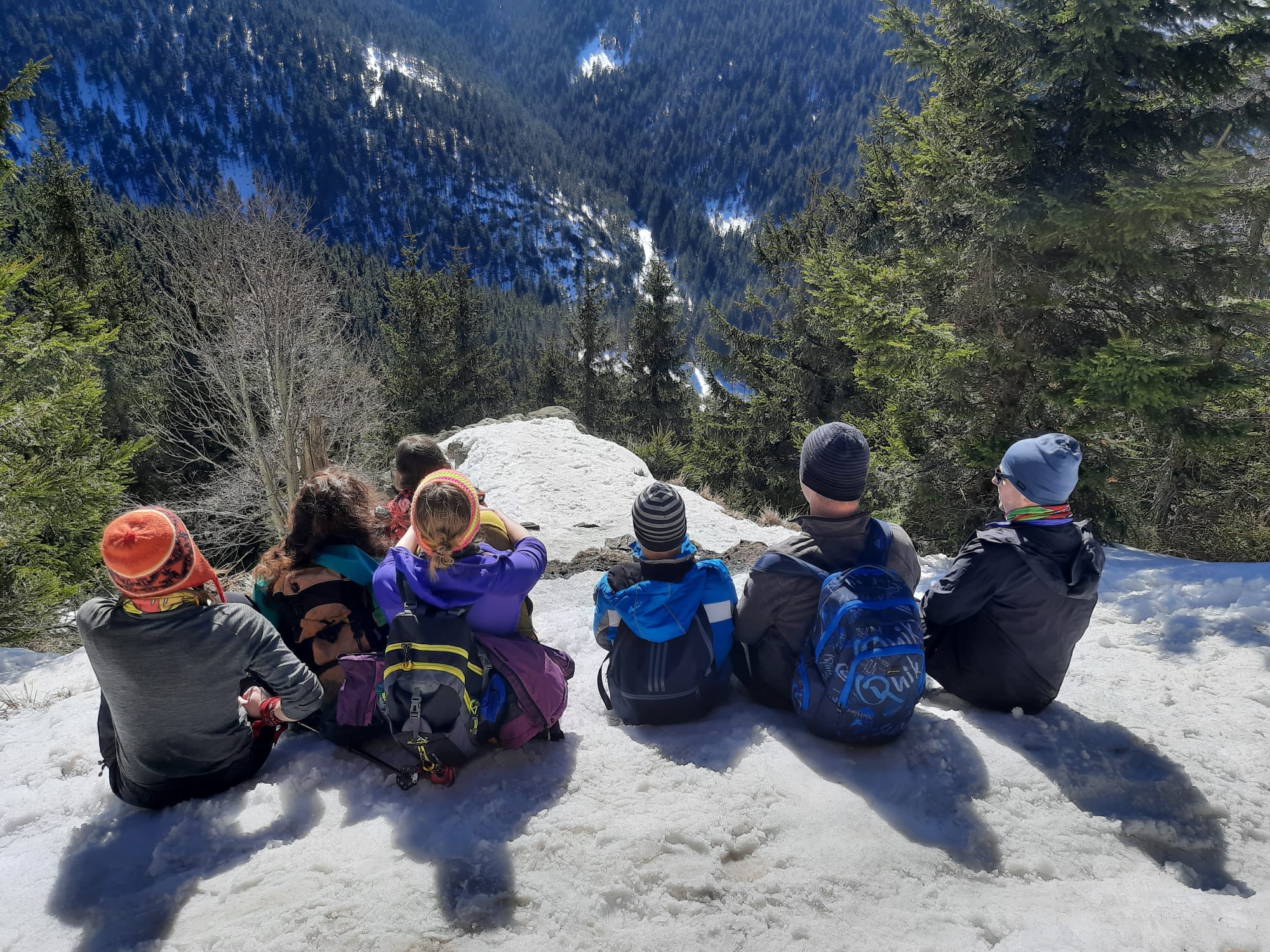
The Activity Center – BAZA*, run by Foundation Imago, is an institution that supports people with disabilities and their carers through contact with nature and outdoor activities. The center is located in Wrocław, yet it is often empty, as the people engaged in the institution spend more time outside the building.
The name of the center refers directly to the word “base camp” which means a safe camping place in the high mountains from which the climbers begin their journey to create succeeding – higher-based camps and to which they return to take a rest before another summit push.
From the outset, we try to make our institution a safe space for development for our participants. The place from which everyone could begin climbing on their own Everest, as is the case of mountain climbing, not alone but in a team, experiencing strength got from being in a group. That is why BAZA is also, or maybe primarily, a community. It is constituted of young people with disabilities, their parents and carers, and also assistants and volunteers. Currently, from the offer of BAZA Center benefit around 80 people with disabilities from the age of 15 to 40. They are people with physical disabilities, as well as sensory, intellectual, and youth with developmental disorders.
Activities organized by BAZA Center are based on the methods derived from the current of therapy based on contact with nature, Adventure & Wilderness Therapy. Its essential assumption is that contact with nature strengthens healing processes and emotional development. What is important, these changes are made simultaneously on two levels: physical and emotional. Because of spending time in the wilderness (Wilderness Therapy) and undertaking viable challenges (Adventure Therapy), the participants learn more about themselves, gain new abilities, overcome their fears and practice their social competencies. They often are unaware that these activities are also a form of physical rehabilitation: they strengthen respective parts of muscles, stabilization of the whole body, or sense of equilibrium.
The mission that motivates the actions of BAZA Center is to gradually increase the availability of outdoor activities for people with disabilities. To make it happen, it is necessary to diagnose the psychophysical abilities of the participants, including their level of functioning, potential, difficulties experienced by them, and psycho-developmental needs. The more accurate the diagnosis is, of course, the easier it is to plan later activities in nature, which on the one hand, are ambitious - they are a real challenge for the participants, and on the other hand, through the adaptation of the necessary elements and the support of assistants, possible to do. Importantly, the activities to which we invite participants are always planned together with them, and the level of difficulty of the challenges they face increases only when they are ready for it.
And so, we started with several-hour trips to the nearby forest, located within the borders of Wrocław, field games and cooking on a fire, and one-day trips on kayaks and rafts. The next stage was summer expeditions to ever-higher mountain peaks. Finally, we moved on to winter expeditions to the mountains, learning how to survive in winter conditions, climbing rocks, and sleeping in tents.
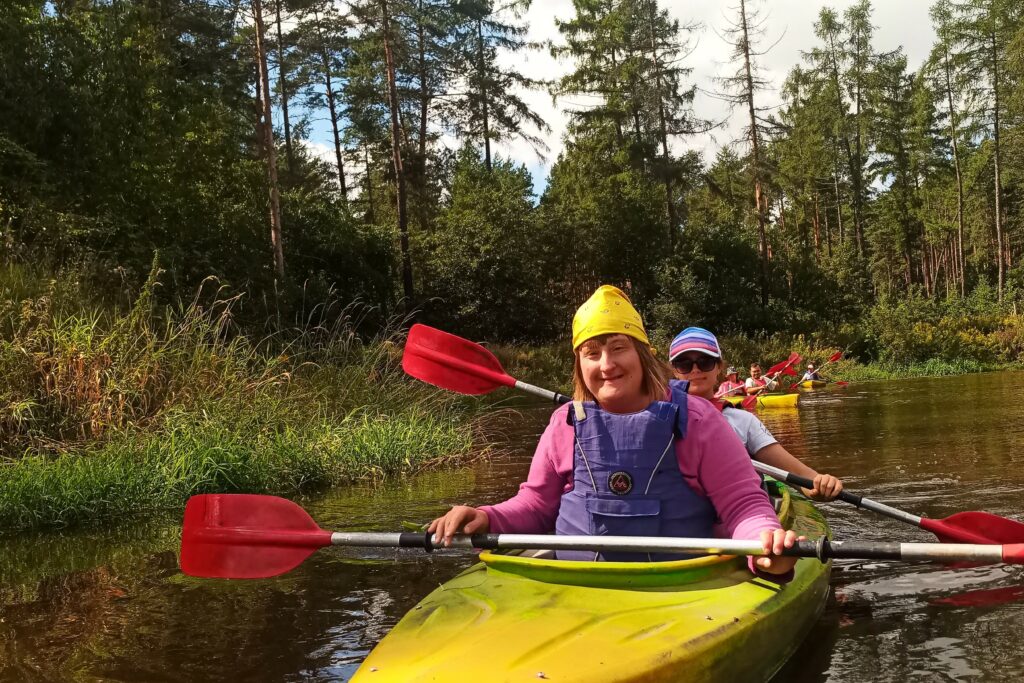
Therapy through adventure is a process in which contact with nature and experiencing real challenges allow you to overcome your own limitations, gain new competencies and get to know yourself better in social situations.
It was like that in the case of Maja, whose participation in Adventure Therapy programs helped her regain faith in her abilities:
“Since I can remember, I often have been physically active - I swam, played table tennis, and competed in competitions. Unfortunately, when I left for college, it turned out that I suffered from systemic lupus erythematosus, which was slowly destroying my body. As time flew, I felt it more and more. First, epilepsy appeared, and in 2016 I sat in a wheelchair due to paresis of the lower limbs and left hand. All the time, I was training intensively at home, and a friend even persuaded me to go to the gym. Nevertheless, after another operation, the long-lasting healing time, the worsening of the disease, and the lockdown, I withdrew from activities outside the home. I could not find myself; I thought it was impossible.
Then I discovered the Adventure Therapy method and classes organized by the Foundation Imago. After discussing my difficulties, I was invited to participate in... kayaking! Suddenly, what might have seemed like a complete abstraction was at your fingertips. It worked, my love for water also returned, and kayaking became my new way to relax. When it seemed that the peak of the impossible had already been reached, there appeared an opportunity to participate in classes on the climbing wall. It is impossible, I thought. And yet! During the meetings, I not only met new fantastic people, gained self-confidence, but also significantly improved my functioning and acquired skills useful in everyday life - stabilization, body awareness, strength.”
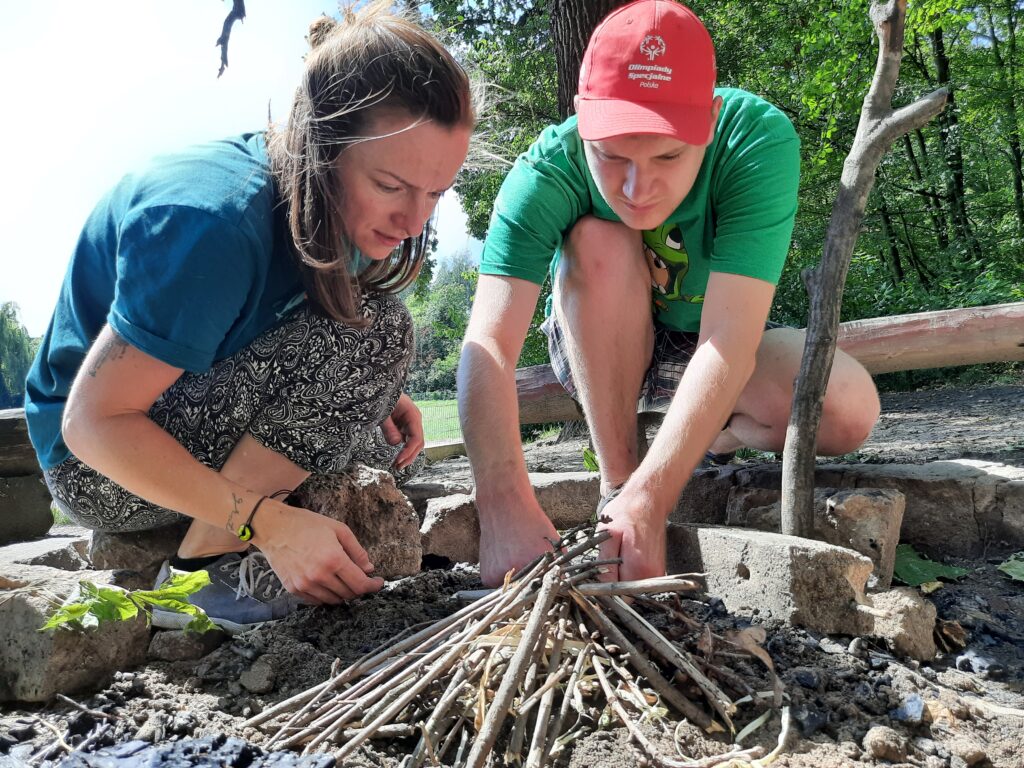
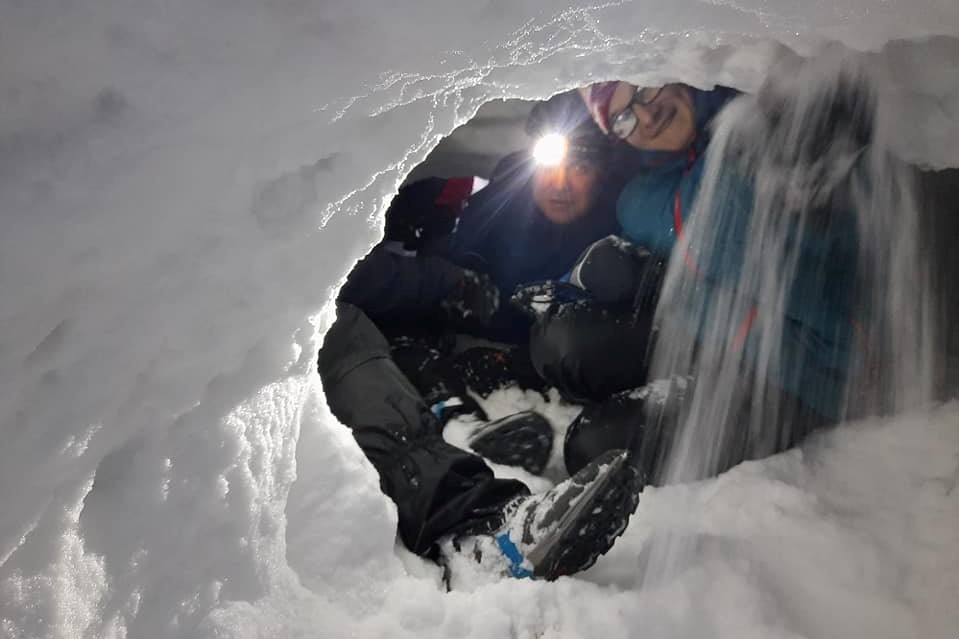
In addition to trips to nature, Center BAZA also offers weekly therapeutic climbing classes. Even though the classes are mostly held on an artificial wall, the participants meet the conditions of Adventure Therapy. Climbing is a challenge and stimulates both at the physical, mental and emotional levels. It is a partnership activity; it requires building a relationship based on trust. It teaches perseverance in pursuing a goal, overcoming difficulties, and enjoying the success achieved. It allows you to train social skills in safe "laboratory" conditions.
However, the greatest advantage of therapeutic climbing is that instead of the tedious repetition of exercises, the participant has a great time, not feeling that he is taking part in therapy.
It is what Szymon's mother, a 16-year-old participant, says about therapeutic climbing classes:
“We have been looking for a suitable sports activity for Szymon for a long time. There was a ball, running, kayaking, and swimming, but something still did not feel right; either it was too difficult, or health did not allow for the chosen activity. The climb turned out to be a stroke of genius. At first, a little timidly, but with small steps, Szymon began to reach the top. Great trust in the teachers led to the moment when the initial fun turned into a great sports activity. Besides, this is the best rehabilitation for Szymon. All muscles were involved in the work, and his motor coordination improved. Competition between friends is also important, which is why I believe that group classes are an additional mobilization. Moreover, new extracurricular acquaintances are also very valuable for people with disabilities, whose circle of friends is limited. Sports activity gives people with disabilities the feeling that they can do more than just sit at home, constantly absorbing their parents, who also play the role of their friends.”
Mikołaj's father also shares similar thoughts:
“Mikołaj and climbing? When I heard about this offer, I thought it was a waste of time. Even after the initial classes, I did not fully believe that Miki would ever climb even on the first level. Seeing what height Mikołaj climbed on during the last classes, I am glad I was so wrong. I saw Mikołaj's joy on Thursday evenings when we go to the climbing wall. I think that it (the wall) builds Mikołaj's self-confidence and allows him to integrate with friends who experience similar difficulties.”
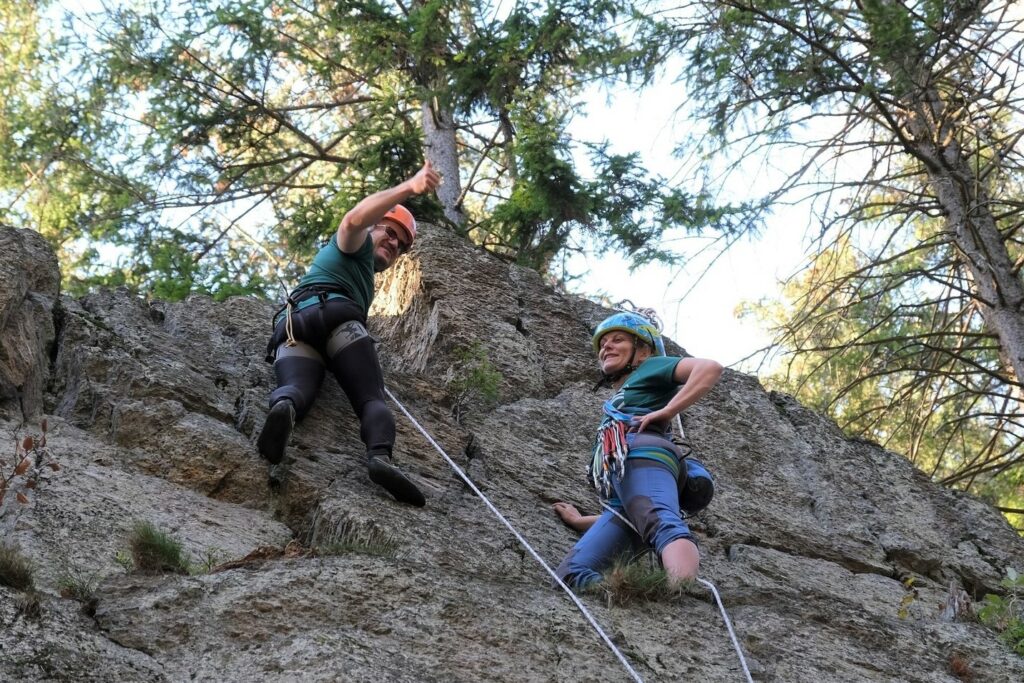
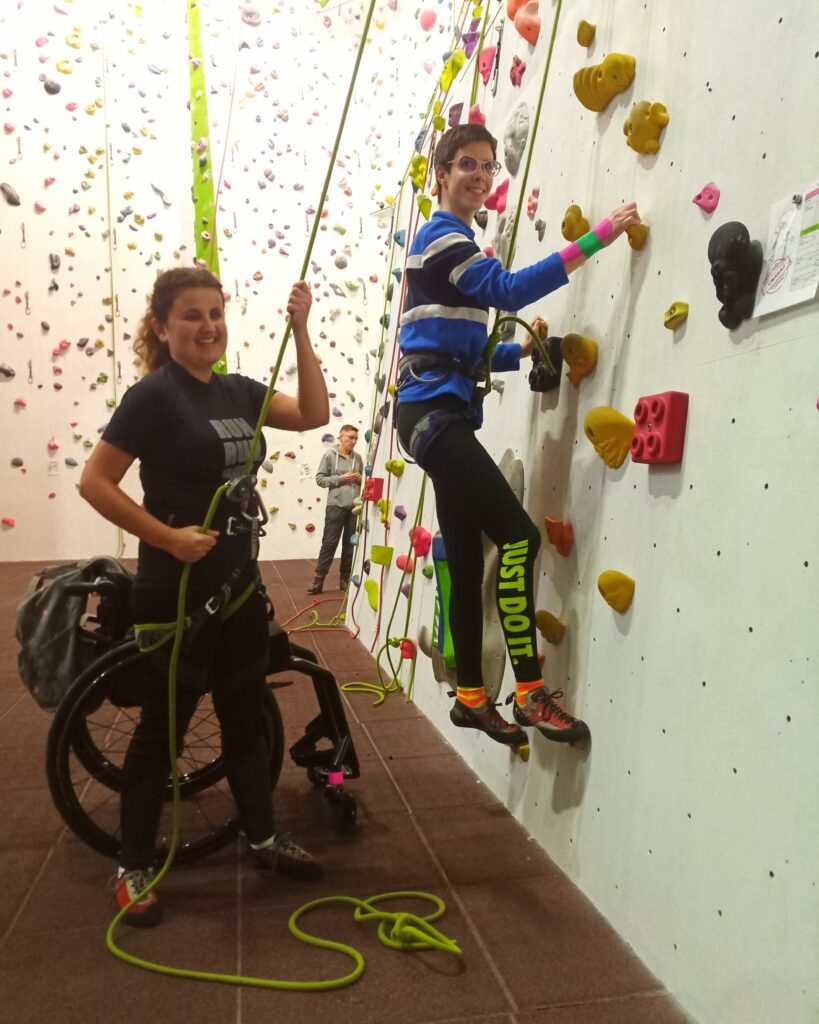
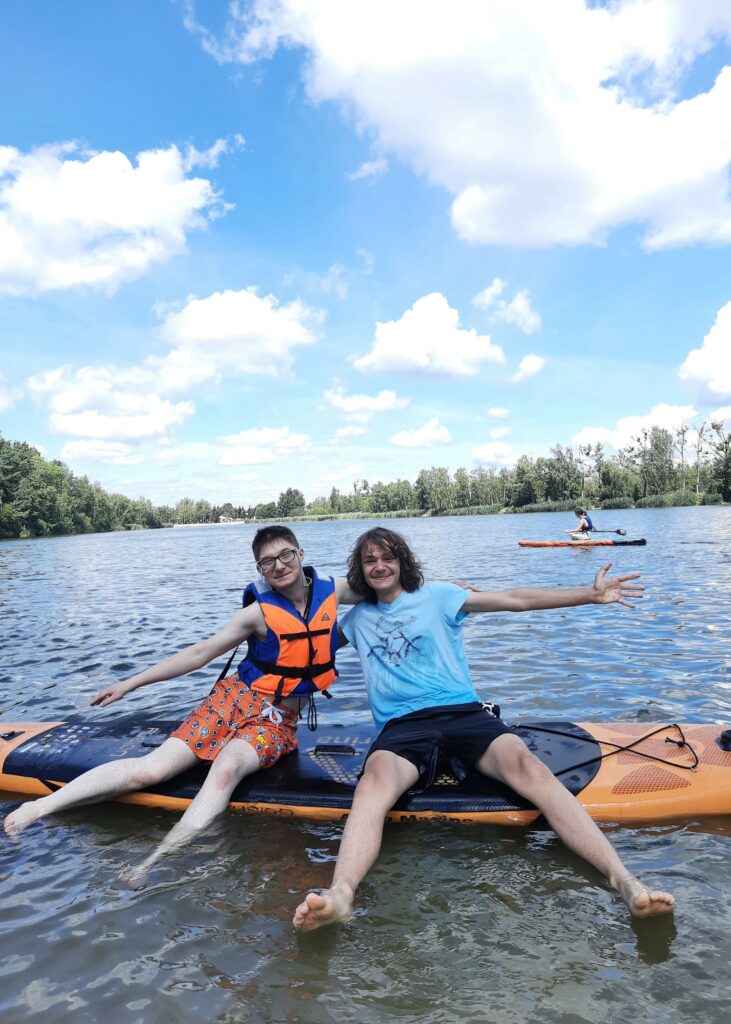
Although the activities of the BAZA Center are created for people with disabilities, they also have another goal, equally important - providing a respite break for their carers.
While their charges participate in the Adventure therapy program, parents of people with disabilities gain time that they miss on a daily basis. You can take care of postponed matters or just do something for yourself. The mother of autistic teenage Marcel, while her son was spending time in the mountains, had time to go to the theatre for the first time in a long time; Mikołaj's dad, when his son climbs the next meters of the wall, reads and relaxes after a whole day of work.
And although sometimes parents also take part in trips into nature, thanks to the support of committed assistants who take care of their children at that time, it is a time of respite for them.
This is what the mother of severely disabled Paweł says about it:
“For me and my son, Adventure Therapy trips were a fantastic experience. Spending the whole day in the bosom of nature was a good time to break away from the hustle and bustle of the city and catch your breath.”
Adventure therapy, active recreation, and social tourism will be one of the topics of workshops and plenary sessions during the ISBA Conference 2023.
*The project "Adventure Base - Center for Activity and Integration" is financed by Iceland, Liechtenstein and Norway from the EEA Funds under the Active Citizens - Regional Fund Program

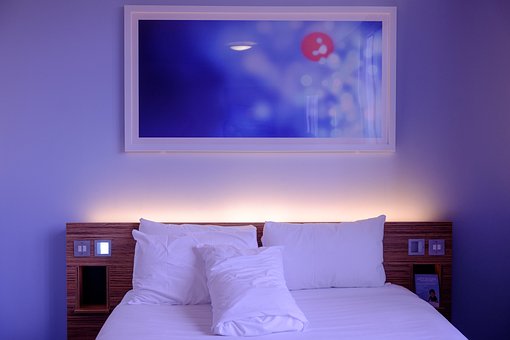
Imago Foundation
Address: Fundacja Imago,
ul. Hallera 123, 53-201 Wroclaw
Piotr Kuźniak
E-mail: isba.shortbreak@gmail.com
Call: +48 691 270 754
Magdalena Stempska
Email: isba2023@fundacjaimago.pl
Call: +48 665 552 887
Magda Kowalska
Email: isba2023@fundacjaimago.pl
Call: +48 690 504 673
Email: isba.shortbreak@gmail.com
Call: +48 691 270 754
Enter your e-mail address
Any questions, please write to us!
© ISBA
This website uses cookies. Learn more about the purpose of their use and the possibility of changing cookies settings in your browser